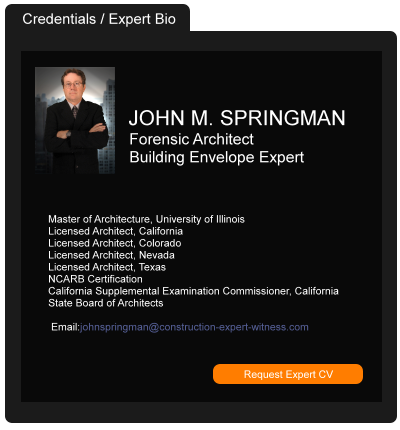Washington Builders Right To Repair Current Law Summary:
Current Law Summary: (SB 5536) The legislature passed a contractor protection bill that reduces contractors' exposure to lawsuits to six years from 12, and gives builders seven "affirmative defenses" to counter defect complaints from homeowners. Claimant must provide notice no later than 45 days before filing action; within 21 days of notice of claim, "construction professional" must serve response; claimant must accept or reject inspection proposal or settlement offer within 30 days; within 14 days following inspection, construction pro must serve written offer to remedy/compromise/settle; claimant can reject all offers; statutes of limitations are tolled until 60 days after period of time during which filing of action is barred under section 3 of the act. This law applies to single-family dwellings and condos.
Building Expert Contractors Licensing
Guidelines Seattle Washington
A license is required for plumbing, and electrical trades. Businesses must register with the Secretary of State.
Association Directory
Local # 4955
335 116th Ave SE
Bellevue, WA 98004
http://www.masterbuildersinfo.com
Seattle Washington Building Expert 10/ 10
Home Builders Association of Kitsap County
Local # 4944
5251 Auto Ctr Way
Bremerton, WA 98312
http://www.kitsaphba.com
Seattle Washington Building Expert 10/ 10
Home Builders Association of Spokane
Local # 4966
5813 E 4th Ave Ste 201
Spokane, WA 99212
http://www.shba.com
Seattle Washington Building Expert 10/ 10
Home Builders Association of North Central
Local # 4957
PO Box 2065
Wenatchee, WA 98801
http://www.nchba.cc
Seattle Washington Building Expert 10/ 10
MBuilders Association of Pierce County
Local # 4977
PO Box 1913 Suite 301
Tacoma, WA 98401
http://www.mbapierce.com
Seattle Washington Building Expert 10/ 10
North Peninsula Builders Association
Local # 4927
PO Box 748
Port Angeles, WA 98362
Seattle Washington Building Expert 10/ 10
Jefferson County Home Builders Association
Local # 4947
PO Box 1399
Port Hadlock, WA 98339
http://www.jeffcohomebuilders.com
Seattle Washington Building Expert 10/ 10
Building Expert News and Information
For Seattle Washington
Power to the Office Worker
Construction Worker Dies after Building Collapse
Treble Damages Awarded After Insurer Denies Coverage for Collapse
United States Supreme Court Backtracks on Recent Trajectory Away from Assertions of General Jurisdiction in Mallory v. Norfolk Southern
Not Pandemic-Proof: The Ongoing Impact of COVID-19 on the Commercial Construction Industry
Construction Feb. Jobs Jump by 61,000, Jobless Rate Up from Jan.
In Matter of First Impression, California Appellate Court Finds a Claim for a Real Estate Professional’s Breach of Fiduciary Duty is Assignable
Jason Poore Receives 2018 Joseph H. Foster Young Lawyer Award
FAA Seeks Largest Fine Yet on Drones in Near-Miss Crackdown
Architects Group Lowers U.S. Construction Forecast
Arctic Fires Are Melting Permafrost That Keeps Carbon Underground
Harlem Developers Reach Deal with Attorney General
Attorney-Client Privilege in the Age of Cyber Breaches
Second Circuit Denies Petitions for Review of EPA’s Final Regulations to Establish Requirements for Cooling Water Intake Structures
Contractors: Beware the Subordination Clause
Solutions To 4 Common Law Firm Diversity Challenges
Traub Lieberman Chair Emeritus Awarded the 2022 Vince Donohue Award by the International Association of Claim Professionals
Updates to AIA Contract Applications
U.S. Government Bans Use of Mandatory Arbitration Agreements between Nursing Homes and Residents, Effective November 28, 2016
Bidder Be Thoughtful: The Impacts of Disclaimers in Pre-Bid Reports
The Biggest Thing Keeping Young Homebuyers out of the Market Isn't Student Debt
Need to Cover Yourself for “Crisis” Changes on a Job Site? Try These Tips (guest post)
California’s Prompt Payment Laws: Just Because an Owner Has Changed Course Doesn’t Mean It’s Changed Course on Previous Payments
60-Mile-Long Drone Inspection Flight Points to the Future
ASCE Releases First-of-its-Kind Sustainable Infrastructure Standard
Wyncrest Commons: Commonly Used Progress Payments in Construction Contracts Do Not Render Them Installment Contracts
The Future Has Arrived: New Technologies in Construction
Evaluating Construction Trends From 2023 and Forecasting For 2024
Parol Evidence can be Used to Defeat Fraudulent Lien
Government’s Termination of Contractor for Default for Failure-To-Make Progress
Luxury-Apartment Boom Favors D.C.’s Millennial Renters
Housing Inventory Might be Distorted by Pocket Listings
Significant Issues Test Applies to Fraudulent Claims to Determine Attorney’s Fees
Construction Defect Leads to Death of Worker
Mind Over Matter: Court Finds Expert Opinion Based on NFPA 921 Reliable Despite Absence of Physical Testing
Supreme Court Overrules Longstanding Decision Supporting Collection of Union Agency Fees
Wildfire Insurance Coverage Series, Part 7: How to Successfully Prepare, Submit and Negotiate the Claim
Construction Defect Litigation in Nevada Called "Out of Control"
Economic Waste Doctrine and Construction Defects / Nonconforming Work
New York State Trial Court Addresses “Trigger of Coverage” for Asbestos Claims and Other Coverage Issues
Thank You for 14 Consecutive Years of Legal Elite Elections
A Recap of the Supreme Court’s 2019 Summer Slate
Stay of Coverage Case Appropriate While Court Determines Arbitrability of Dispute
Homeowners Must Comply with Arbitration over Construction Defects
Mediating Contract Claims and Disputes at the ASBCA
Robots on Construction Sites Are Raising Legal Questions
Florida Death Toll Rises by Three, Reaching 27 as Search Resumes
Housing Starts in U.S. Surge to Seven-Year High as Weather Warms
With an Eye Already in the Sky, Crane Camera Goes Big Data
Montana Federal Court Upholds Application of Anti-Concurrent Causation Clause


































































